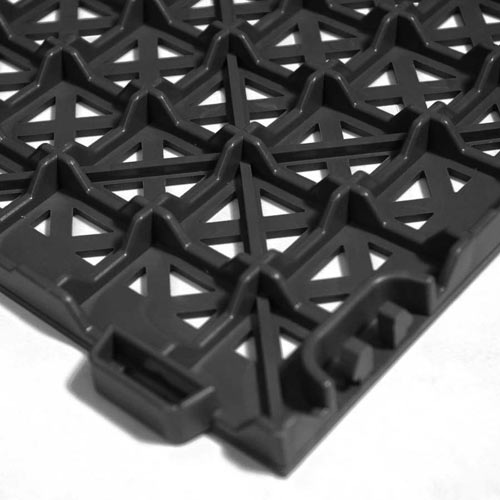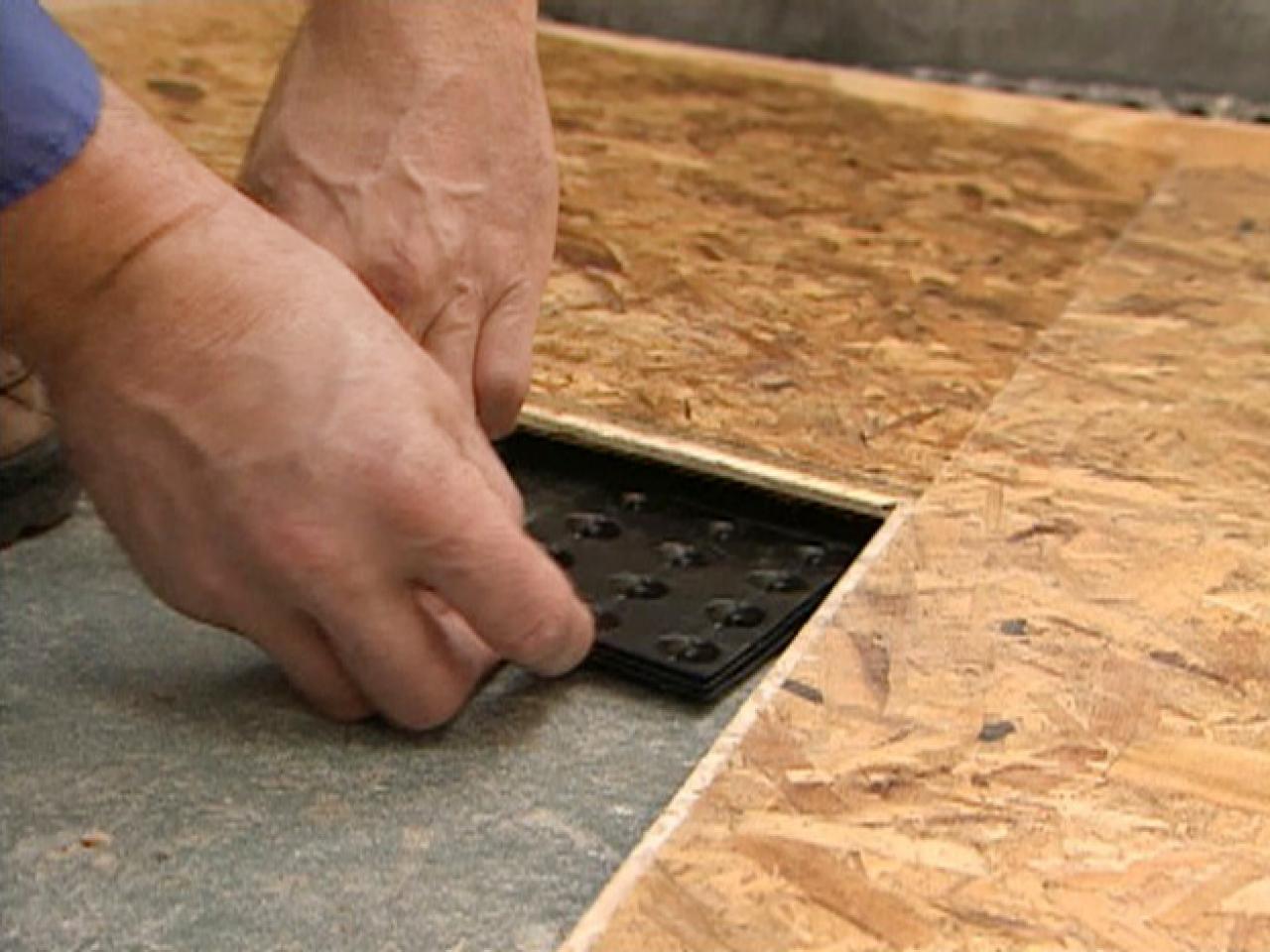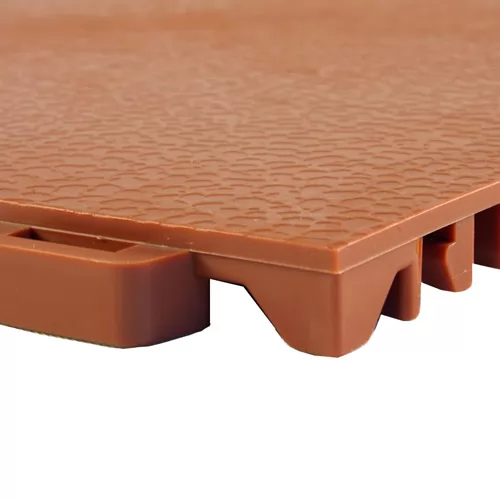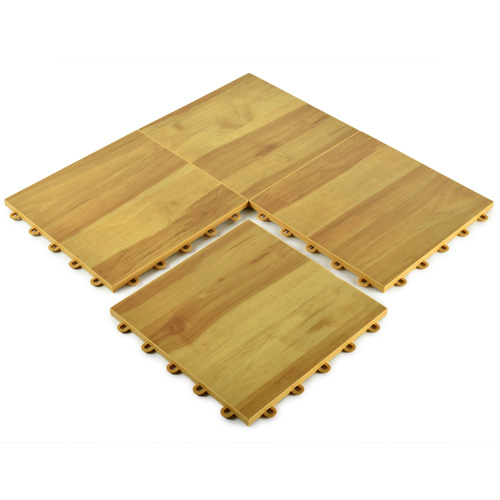Waterproofing Solutions for Damp Basement Floors
A damp basement can cause numerous problems, including mold growth, musty odors, and damage to your belongings. Waterproofing your basement floor is essential to prevent these issues. Below are some effective waterproofing solutions that can help you create a dry and healthy basement environment.
- Exterior Waterproofing: One of the most effective ways to waterproof your basement floor is by addressing the issue from the outside. Exterior waterproofing involves excavating the soil around your foundation, applying a waterproof membrane, and installing a drainage system. This method prevents water from seeping into your basement, ensuring a dry and moisture-free floor.
- Interior Waterproofing: If exterior waterproofing is not feasible, interior waterproofing is another viable option. This method involves applying a waterproof sealant to the interior walls and floor of your basement. It creates a barrier that prevents water from penetrating the floor, keeping it dry. Additionally, installing a sump pump can help remove any excess moisture that may accumulate in the basement.
- Epoxy Coatings: Epoxy coatings are an excellent choice for waterproofing basement floors. These coatings create a durable and impermeable surface that prevents water from seeping through. Epoxy coatings are available in various colors and finishes, allowing you to customize the appearance of your basement floor while ensuring its waterproofing capabilities.
- Concrete Sealants: Concrete sealants are another cost-effective option for waterproofing your basement floor. These sealants penetrate the concrete surface, filling in any cracks and creating a waterproof barrier. They are easy to apply and provide long-lasting protection against moisture intrusion.
- Vapor Barriers: Installing vapor barriers is crucial in preventing dampness in basement floors. These plastic or foil sheets are placed under the flooring material, acting as a barrier against moisture. Vapor barriers prevent water vapor from entering the basement, keeping the floor dry and preventing the growth of mold and mildew.
- Regular Maintenance: In addition to these waterproofing solutions, regular maintenance is essential to ensure the longevity of your basement floor. Keep the gutters and downspouts clean and free from debris to prevent water from pooling around the foundation. Regularly inspect the basement for any signs of leaks or dampness and address them promptly to avoid further damage.

Best Flooring Materials for Moisture-Prone Basements
Choosing the right flooring material for a moisture-prone basement can be challenging. It is essential to select a flooring option that can withstand damp conditions and prevent water damage. Let’s explore the best flooring materials that are suitable for basements with moisture issues.
Ceramic or Porcelain Tile: Ceramic or porcelain tile is a popular choice for damp basement floors due to its excellent water resistance. These tiles are non-porous, which means they do not absorb moisture. Additionally, they are durable, easy to clean, and come in various styles and designs, allowing you to create a visually appealing basement space.
Luxury Vinyl Planks: Luxury vinyl planks (LVP) are an excellent choice for moisture-prone basements. LVP is waterproof, making it resistant to water damage and mold growth. It closely resembles the look of hardwood or stone flooring and is available in a wide range of styles and colors. LVP is also easy to install and maintain, making it a practical solution for basement flooring.
Concrete Stain: If you prefer a more industrial and minimalist look for your basement, concrete stain is an excellent option. Concrete stain penetrates the concrete surface, adding color while providing a protective layer against moisture. It is a cost-effective solution that requires minimal maintenance and can withstand damp conditions.
Cork Flooring: Cork flooring is an eco-friendly and moisture-resistant option for basement floors. Cork is naturally resistant to mold and mildew, making it an ideal choice for damp environments. It also provides excellent insulation and cushioning, making it comfortable to walk on. Cork flooring comes in various colors and styles, allowing you to achieve the desired look for your basement.
Engineered Hardwood: While solid hardwood is not recommended for damp basements, engineered hardwood can be a suitable alternative. Engineered hardwood is constructed with multiple layers, including a top layer of real hardwood and a moisture-resistant core. This construction makes it more resistant to moisture than solid hardwood, ensuring its durability in a basement setting.
Rubber Flooring: Rubber flooring is an excellent choice for basements that experience high levels of moisture. Rubber is naturally resistant to water and provides excellent traction, making it a safe option for basement floors. It is available in various colors and designs, allowing you to create a unique and functional basement space.
Moisture-Resistant Flooring Options for Damp Basements
Moisture-prone basements require flooring options that can withstand high humidity levels and occasional water exposure. Below are several moisture-resistant flooring options that are specifically designed to handle damp basement conditions.
Luxury Vinyl Tile (LVT): Luxury vinyl tile (LVT) is a moisture-resistant flooring option that is perfect for damp basements. LVT is constructed with multiple layers, including a waterproof core and a protective wear layer. It is highly resistant to water damage, making it an excellent choice for areas prone to moisture. LVT comes in a wide range of styles and designs, including options that mimic the look of natural stone or hardwood.
Sheet Vinyl: Sheet vinyl is another moisture-resistant flooring option suitable for damp basements. It is made from a single, continuous sheet of vinyl, which eliminates the need for seams that could potentially allow water to penetrate. Sheet vinyl is highly durable, easy to clean, and available in various patterns and colors. It provides a seamless and waterproof flooring solution for moisture-prone basements.
Concrete Overlay: If you prefer the industrial look of concrete but want a moisture-resistant flooring option, a concrete overlay is worth considering. A concrete overlay is a thin layer of specialized concrete that is applied over the existing concrete floor. It can be customized with stains or dyes to achieve the desired look. With proper sealing, a concrete overlay can provide a moisture-resistant and durable flooring surface for your basement.
Rubberized Flooring: Rubberized flooring is an excellent choice for basements that experience frequent water exposure or high humidity levels. This type of flooring is made from recycled rubber and is highly resistant to water damage. It offers excellent traction, making it suitable for areas that may get wet. Rubberized flooring is available in various colors and patterns and provides a comfortable and durable option for moisture-prone basements.
Epoxy Flooring: Epoxy flooring is a popular choice for basements due to its moisture-resistant properties. It is made from a combination of resins and hardeners, creating a durable and waterproof surface. Epoxy flooring is available in different colors and finishes, allowing you to create a customized look for your basement. It is easy to clean, resistant to stains, and provides excellent protection against water damage.
Interlocking Floor Tiles: Interlocking floor tiles are an easy and versatile option for moisture-prone basements. These tiles feature a locking mechanism that allows them to be quickly and easily installed without the need for adhesives. Interlocking floor tiles are available in various materials, including vinyl, rubber, and plastic. They provide a waterproof and durable flooring solution that can be easily replaced or reconfigured if needed.
How to Prevent Dampness in Basement Floors
Preventing dampness in basement floors is essential to maintain a dry and healthy living environment. Here are some effective strategies and preventive measures that can help you keep your basement floors free from moisture.
Proper Grading and Drainage: Ensure that the ground around your home is properly graded to slope away from the foundation. This will prevent water from pooling around the basement walls and seeping into the floor. Additionally, make sure that downspouts and gutters are in good condition and directed away from the foundation to prevent water accumulation.
Install a Vapor Barrier: Installing a vapor barrier is an effective way to prevent moisture from seeping into your basement floors. A vapor barrier is a plastic or foil sheet that is placed over the soil or under the flooring material. It acts as a barrier against moisture, preventing it from entering the basement. Ensure that the vapor barrier is properly installed and sealed to provide maximum protection.
Improve Ventilation: Proper ventilation is crucial in preventing dampness in basement floors. Ensure that your basement has adequate airflow by installing vents or fans. This will help reduce humidity levels and prevent moisture buildup. Consider using a dehumidifier to further control humidity and moisture in the basement.
Repair Foundation Cracks: Inspect the foundation walls and floor for any cracks or gaps that may allow water to enter. Repair these cracks promptly using a waterproof sealant or epoxy injection. This will prevent water from seeping into the basement and causing dampness in the floors.
Waterproof the Exterior: Consider waterproofing the exterior of your basement walls to prevent moisture from entering. This can involve applying a waterproof membrane, installing a drainage system, or using a waterproof coating. Consult with a professional to determine the best waterproofing method for your specific situation.
Regular Maintenance: Regular maintenance is essential in preventing dampness in basement floors. Keep an eye out for any signs of leaks or water damage and address them promptly. Clean and maintain gutters and downspouts to ensure proper water drainage. Regularly inspect the basement for any signs of mold or mildew and take appropriate measures to eliminate them.
Pros and Cons of Different Damp Basement Flooring Options
Choosing the right flooring for a damp basement requires careful consideration of the pros and cons of each option. Below are the advantages and disadvantages of different damp basement flooring options to help you make an informed decision.
Carpet: Carpet is a popular choice for basement flooring due to its warmth and comfort. However, it is not the best option for damp basements. The main disadvantage of carpet is its susceptibility to mold and mildew growth in moist environments. It can also absorb moisture, leading to unpleasant odors and potential damage. On the positive side, the carpet provides insulation and softness underfoot, making it comfortable for recreational spaces.
Laminate Flooring: Laminate flooring is an affordable and durable option for basement floors. It is resistant to moisture to some extent, but excessive water exposure can cause damage. Laminate flooring consists of a fiberboard core that can swell or warp when exposed to moisture. However, with proper installation and precautions, such as using moisture-resistant underlayment and sealing the edges, laminate flooring can be a viable choice.
Engineered Vinyl Plank (EVP): Engineered vinyl plank (EVP) is a versatile and resilient flooring option suitable for damp basements. EVP is composed of multiple layers, including a waterproof core, making it highly resistant to moisture and water damage. It can mimic the look of hardwood or stone, is easy to install, and requires minimal maintenance. However, EVP can be more expensive than other options.
Ceramic or Porcelain Tile: Ceramic or porcelain tile is a popular choice for damp basement flooring due to its excellent water resistance. It is highly durable and can withstand moisture without warping or deteriorating. The tile is also easy to clean and does not promote mold growth. However, it can be cold underfoot, and if not properly installed, moisture can seep through the grout lines.
Concrete: Concrete flooring is a practical option for damp basements. It is naturally moisture-resistant and can withstand high humidity levels. Concrete is also durable and easy to clean. However, it can be hard and cold, so additional flooring or area rugs may be needed for comfort. Concrete can also develop cracks over time, which may require repair.
Rubber Flooring: Rubber flooring is an excellent choice for basements prone to moisture. It is highly resistant to water and provides good traction. Rubber flooring is also comfortable to walk on and offers insulation. However, it can be more expensive than other options, and some people may find the rubber odor unpleasant.
Basement Flooring Ideas for Your Home
The 10 Best Basement Flooring Options – The Flooring Girl
Wet Basement Flooring Options with Built-In Vapor Barrier
Basement Flooring Ideas for Your Home
Related Posts:
- Basement Floor Color Ideas
- Rubber Flooring For Basement
- How To Clear A Basement Floor Drain
- Basement Floor Covering Ideas
- Acid Wash Basement Floor
- Best Flooring For Concrete Basement Floor
- Insulation Under Basement Floor
- Stone Basement Floor
- Basement Floor Leveling Options
- Basement Flooring Options Inexpensive


.jpg?widthu003d800u0026nameu003d11513489635_f12521f2a2_k%20(1).jpg)




